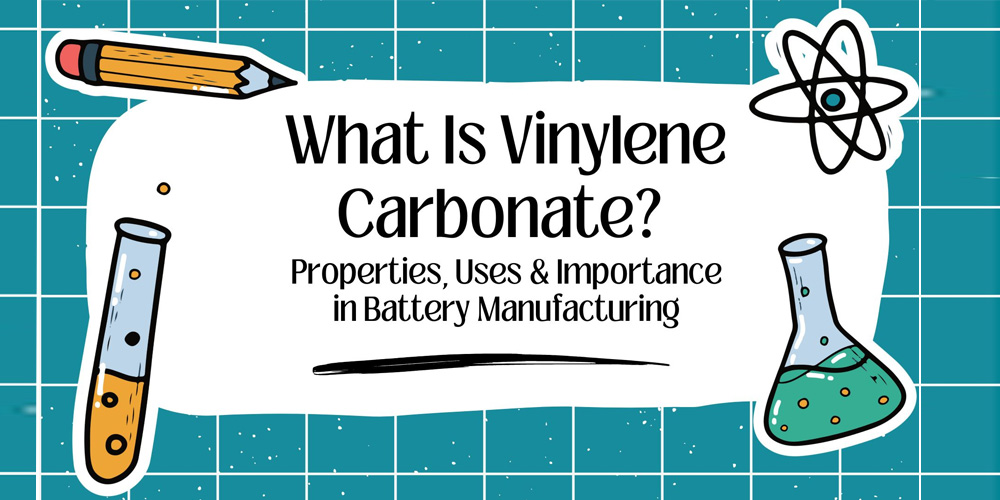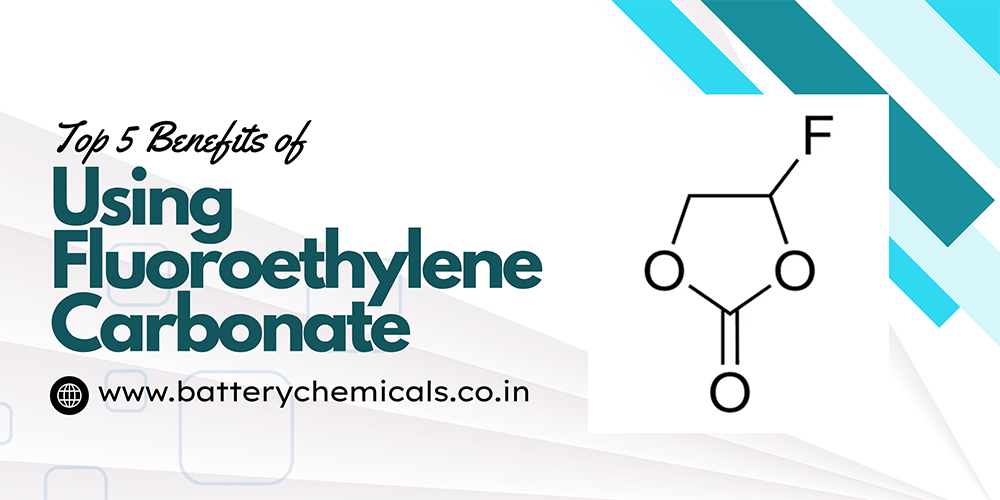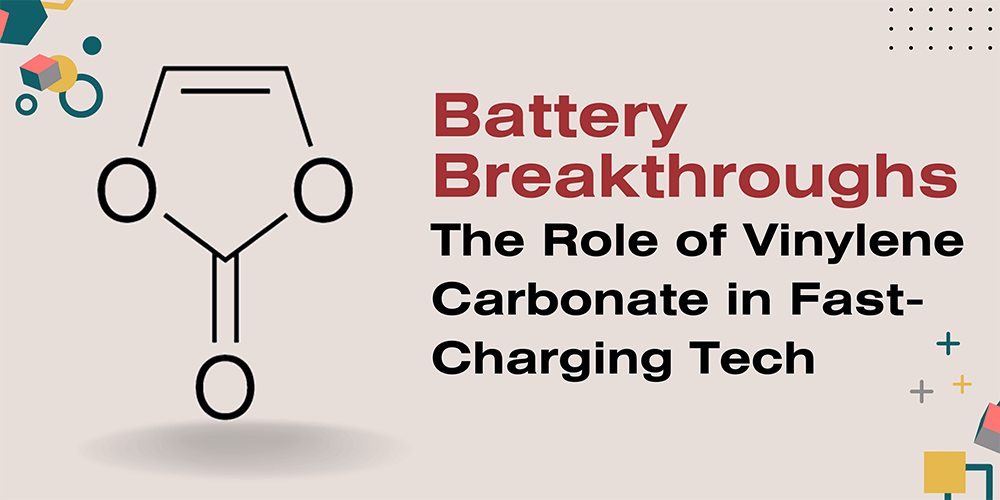
By Admin | 23 Sep ,2025
As technology keeps moving forward, the way we store energy is also getting better. One special chemical Vinylene Carbonate (VC) plays an important role in this progress. It is a key chemical that lithium ion batteries use to make them last longer, operate safely and function better. Electric cars, cellphones, laptops and big energy storage systems all use it.
We will learn here about Vinylene Carbonate, its primary properties, where it is used and why it is so important for the development of battery technology.
What Is Vinylene Carbonate?
Vinylene Carbonate (VC) is a chemical which is made up of carbon, hydrogen and oxygen. It is a clear, colorless liquid with no smell which mixes easily with the liquids used in lithium ion batteries.
VC plays an important role in batteries. It helps to create a protective layer on the anode of the battery which improves battery life and enhances performance especially during charging and discharging. VC is also used in polymer chemistry where it interacts with other substances to create new materials. Vinylene Carbonate has to be stored under regulated conditions and handled with extreme care because of its high reactivity.
VC is a cyclic carbonate which makes it chemically reactive and an excellent candidate for forming solid electrolyte interphase (SEI) layers in lithium ion batteries.
Key Properties of Vinylene Carbonate
- Reactivity : Highly reactive due to its cyclic structure
- Purity Requirement : ≥ 99.95% for battery grade applications
- Thermal Stability : Stable under standard storage conditions
- Electrochemical Behavior : Promotes formation of stable SEI layers
Applications of Vinylene Carbonate in Battery Manufacturing
Vinylene Carbonate (VC) is an essential supplement in lithium ion battery electrolytes which is widely recognized for its role in enhancing battery performance, safety and durability. It is used in many types of batteries and industries.
1. Formation of Stable Solid Electrolyte Interphase
- VC is mainly used to help form a strong and even protective layer on the battery’s anode, especially on graphite anodes. This SEI layer which protects the battery by stopping the electrolyte from breaking down during charging and discharging. This increases the battery's life, efficiency, and slows down its capacity loss.
2. Enhancing Battery Cycle Life and Efficiency
- Vinylene Carbonate is introduced to the electrolyte in the battery in order to increase the life of the battery and enhance the performance of the battery. It decreases the possibility of the risky chemical reactions that may destroy the battery with the course of time and makes the battery more stable indoors. This implies that the battery will be able to retain its charge and pass through more charging and discharging cycles than the batteries that do not utilize VC.
3. Improving Low Temperature and High Voltage Performance
- This is why it is specifically utilized in the battery of large energy storage systems and electric vehicles VC makes the electrodes and electrolyte of the battery stable even in such adverse conditions as extremely low temperatures or high-voltage. This is what makes it perfect in batteries of electric cars and large energy storage where a repeatable performance is important even in harsh conditions.
4. Safety Enhancements and Thermal Stability
- VC contributes to enhanced safety by minimizing gas generation and reducing the risk of thermal runaway which can result in battery swelling or fires. It creates stronger SEI that can withstand temperature changes and suppress lithium dendrite development, a main reason for internal short circuits in lithium ion batteries.
5. Use in Emerging Battery Technologies
- Beyond traditional lithium ion cells, VC is becoming more and more researched for use in next generation batteries, including those with silicon based anodes and solid state electrolytes. In these innovative uses, VC’s role in interface stabilization is critical to overcoming challenges like volume expansion and interface resistance.
Global Demand & Market Trends
With the global shift toward electric mobility and renewable energy, the demand for high performance battery chemicals like Vinylene Carbonate is rising. Battery manufacturers worldwide are seeking high purity VC suppliers to meet evolving quality standards. According to industry forecasts, the Vinylene Carbonate market is expected to grow at a CAGR of over 15% in the next five years, driven largely by the EV sector and grid storage systems.
The demand for Vinylene Carbonate (VC) is growing quickly around the world. This is mainly because of the fast growing electric vehicle (EV) market and the need for better energy storage for renewable energy like solar and wind power.
As battery makers look for ways to make batteries safer and more powerful, VC is becoming more important as a key ingredient. Experts believe the VC market will grow a lot in the coming years, new improvements are helping in lithium ion battery technology and more money being invested in energy storage around the world.
Because of this rising demand, many companies are now increasing their production and coming up with new ways to make and use VC.
Conclusion
Vinylene Carbonate (VC) is a key ingredient that helps lithium ion batteries last longer, stay safe and perform better. It creates a strong protective layer inside the battery, especially useful in electric vehicles and energy storage systems. As demand for clean energy and better batteries grows, VC is becoming more important than ever. Whether you are making batteries in a factory or testing new ones in a lab, using high quality VC can give your batteries a big advantage. Now is the right time to choose the best additives like VC to stay ahead in the growing battery industry.
You can know more about vinylene carbonate from Nova Interchem.



